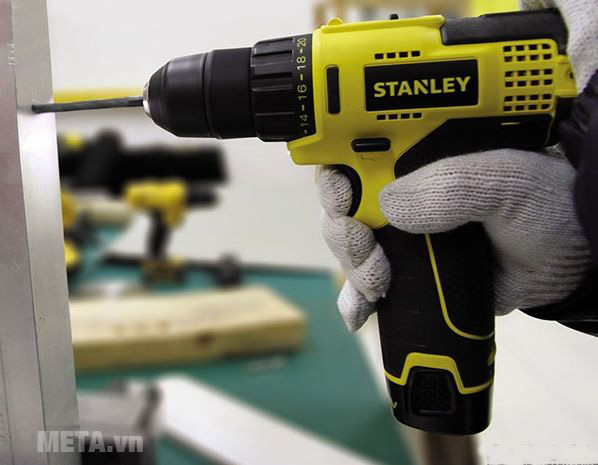Experience choosing the best battery drill
The battery drill is integrated with 2 functions of drilling and screwing with reversing function to help users to use for many different purposes. In addition, the battery-operated screw drill is also highly mobile, working in any position that is not limited by electrical wires and should be chosen to buy a lot. To help you choose the best battery drill, please refer to the article below that Network Administrator shares.
Quick review of content
- How to choose the best battery drill
- 1. Purpose of use
- 2. Technical specifications
- 3. Brand
- 4. Warranty and replacement parts
- 5. Address to buy the device
How to choose the best battery drill
When choosing to buy a battery-operated drill, buyers need to consider the following 5 elements:
1. Using battery drill for what purpose?
This is an extremely important factor to help you choose a drill that suits your working needs.
If your goal is to buy a drill to drill the wall, then choose a dynamic drill, a concrete drill, or a hammer drill.
If your needs are wood drilling, metal drilling and screwdrivers, then choose a machine with both drilling and screwing functions. Do not choose a capacity that is too low and will affect your ability to work.
If you need a battery drill that can be handmade or DIY or engraved, buy a multi-purpose kit.

2. About specifications need to pay attention to voltage, drilling speed and battery type
To choose the powerful battery drill you need to rely on the specifications of the machine. In the specifications the user only needs to pay attention to the battery voltage, chuck size, drilling speed, battery life and clutch type.
Battery voltage:
The strength of each battery drill is evaluated by Volt. Most battery drills are in the range of 2V to 24V. The high battery voltage means that the machine's capacity increases and therefore has greater intensity, making it easier to drill hard objects.
A small hint: If you only aim to use a drill for household repairs, choose a battery drill with a 14V battery voltage. However, if work requires drilling into masonry or other thicker materials, you should choose a battery drill with a larger battery voltage.
Chuck size:
In the battery drill, the chuck is clamped to keep the drill in place. Chuck size is an important feature to consider because it determines the size of the drill bits that can be used. Two common chuck sizes are 1/2 inch and 3/8 inch. Some jobs require adjusting the size of the chuck so this is also considered a very important factor.
Drilling speed:
The speed of a battery powered drill is measured every 1 minute or minute (rpm). The battery drill operates at a speed of about 1,200 rpm to 1,500 rpm and these drillers have an activation button that allows the user to change the speed control of the drill bits.
Battery type:
There are two types of batteries used for battery drills: Nickel and Li-ion batteries. Nickel batteries are relatively cheap, durable and long-lasting. Nickel batteries are rechargeable more than 1,000 times.
Small advice: You should use batteries because Li-ion will have a longer life, charging should not delay your work, and contribute to protecting the environment.
Clutch:
Clutch is a separate feature of the battery drill shaft when the tool bar reaches a significant hardness. Many more expensive models have 24 different installation modes, with smaller screws having fewer settings but more settings for large threads. Other settings allow an experienced driller to modify the drill to the materials they are working on. However, with simple repairs, it is not necessary to have clutch settings.

3. Which battery drill should I buy?
The battery-operated screw drill is widely sold in the market. However, the following prestigious brands must be mentioned:
- Bosch battery drill
- Makita battery drill
- Hitachi battery drill
- Stanley pin drill
These are well-known brands from Germany, Japan and the United States that are trusted by most families and professional repairmen.
4. Warranty and replacement parts
When choosing to buy a battery drill, you should not be cheap, so choose to buy genuine brands because there will be warranty after purchase and full accessories to replace, so it will be more secure. Depending on the manufacturer, the battery drill will have a warranty period of 3 - 12 months.
5. Purchase a battery drill at a reliable address
META.vn is a reputable genuine drilling machine selling point for the past 10 years and has received very high ratings for care and warranty products after purchase. Buyers can order online very conveniently without going to the place, it will not take time.
Hopefully with the useful information above will help you choose the most suitable battery drill.
See also : Which versatile mini drill machine is the best: Bosch, Hitachi, Makita?